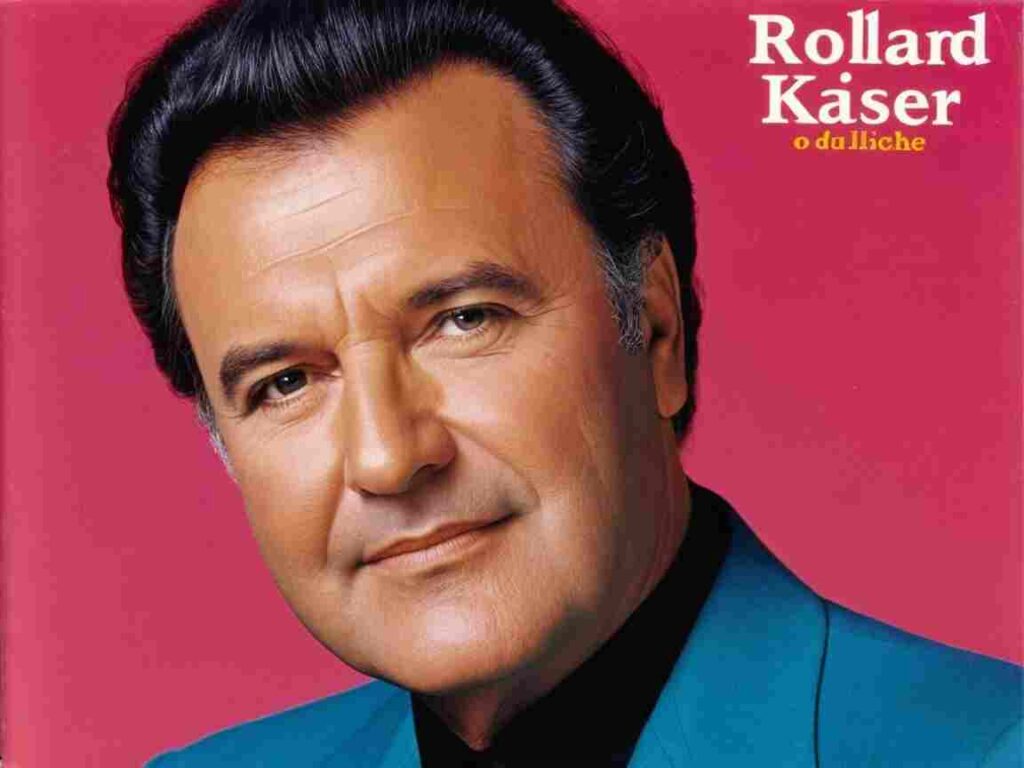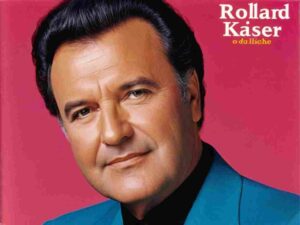Roland kaiser O du Fröhliche Songtext – A Joyful Christmas Rendition!

Christmas is a season filled with warmth, tradition, and music that brings people together. One such beloved tune is the classic carol “O du fröhliche.” In this article, we explore the traditional song’s lyrics and significance, along with how the well-known German singer Roland Kaiser has reinterpreted it for modern audiences.
We will walk through the background of the carol, explain the meaning behind its simple yet profound words, and discuss the impact of Kaiser’s rendition on today’s listeners.
Who Is Roland Kaiser?
Roland Kaiser is a celebrated German pop singer, best known for his contributions to the Schlager music genre. With a career spanning several decades, Kaiser has become a household name in Germany and beyond. His smooth voice and heartfelt delivery have made many of his songs favorites during celebrations and special occasions.
Over the years, Roland Kaiser has shown a unique talent for blending modern musical styles with traditional tunes, making his work appealing to both older and younger generations. His version of “O du fröhliche” is no exception—it honors the original while adding his signature style that brings new life to the classic carol.
A Brief History of “O du fröhliche”
“O du fröhliche” is a well-known German Christmas carol with a rich history. Traditionally sung during the festive season, the song captures the joyful spirit of Christmas. The lyrics speak of a time filled with grace, hope, and renewal—a time when the birth of Christ brings light to the world. Over the centuries, this carol has become an essential part of Christmas celebrations in Germany and many other parts of the world.
The song’s message is simple and heartwarming. It invites listeners to celebrate the beauty of the season, to rejoice in the birth of Christ, and to embrace the unity and love that Christmas represents. The traditional wording has been passed down from one generation to the next, helping to preserve a connection to the past while inspiring hope for the future.
Exploring the Lyrics:
The lyrics of “O du fröhliche” are easy to understand yet carry deep meaning. Let’s take a closer look at some of the key lines:
“O du fröhliche, o du selige,
Gnadenbringende Weihnachtszeit!”
These opening lines set the tone for the entire carol. Translated into English, they mean “O you joyful, o you blessed, grace-giving Christmas time!” The words remind us that Christmas is not just a festive season—it is a time filled with grace and blessings. The repeated call to rejoice reflects the deep spiritual significance of the holiday.
“Welt ging verloren,
Christ ist geboren,
Freue, freue dich, o Christenheit!”
These lines celebrate the birth of Christ, which is at the heart of the Christmas story. “Welt ging verloren” (the world was lost) can be seen as a reference to the human struggle and the darkness that often seems to prevail. However, the birth of Christ is presented as the turning point—a moment of divine intervention that brings hope and salvation. The invitation to “freue dich” (rejoice) is a call for all Christians to embrace this joy and let their hearts be filled with hope.
“Himmlische Heere,
Jauchzen dir Ehre,
Freue, freue dich, o Christenheit!”
In these lines, the imagery becomes even more vivid. “Himmlische Heere” refers to the heavenly hosts, the angels who sing praises to God. Their joyful acclamation is a reminder of the divine celebration that accompanies the birth of Christ. The song, through its repetition of “freue, freue dich” (rejoice, rejoice), encourages everyone to join in this celestial celebration.
The simplicity of the lyrics makes the carol easy to remember and sing, which is one of its enduring charms. The straightforward language invites people from all walks of life to participate in the joy and togetherness of the Christmas season.
Roland Kaiser’s Unique Rendition:
While “O du fröhliche” has been sung by countless choirs and solo artists over the years, Roland Kaiser brings a distinctive touch to his performance. His rendition is characterized by:
- Warm Vocal Tone: Kaiser’s smooth and emotive voice infuses the traditional carol with a modern, heartfelt quality. His vocal delivery is both calming and inspiring, making the listener feel as if they are part of a larger celebration.
- Modern Musical Arrangement: Although the song is steeped in tradition, Kaiser’s version includes subtle modern elements that appeal to today’s audiences. These musical nuances help bridge the gap between classic and contemporary, inviting a new generation to enjoy an age-old carol.
- Respect for Tradition: Despite the modern touches, Kaiser remains true to the song’s original spirit. His version respects the historical and religious significance of “O du fröhliche” while also refreshing its sound for the modern era.
- Accessibility: By keeping the wording and melody simple, his interpretation makes the carol accessible to everyone, regardless of their musical background. This ease of understanding encourages more people to sing along and embrace the Christmas spirit.
Through his performance, Roland Kaiser has not only preserved the timeless message of “O du fröhliche” but also demonstrated how traditional music can evolve without losing its essence.
The Cultural Impact of “O du fröhliche:
The carol “O du fröhliche” holds a special place in the hearts of many, especially within German culture. Here are some ways it impacts listeners:
- Tradition and Memory: For many families, singing this carol during the holiday season is a cherished tradition. It brings back memories of past Christmases and reinforces the importance of family and community.
- Spiritual Significance: The song serves as a reminder of the true meaning of Christmas—the celebration of Christ’s birth. Its lyrics encourage reflection, gratitude, and joy, resonating deeply with those who hold spiritual beliefs.
- Uniting People: Music has the unique power to bring people together, and “O du fröhliche” is a perfect example. Whether sung in a church, at home, or during public celebrations, the carol unites listeners in a shared experience of joy and reverence.
- Modern Adaptation: With renditions by artists like Roland Kaiser, traditional songs are given new life. This blending of old and new helps maintain the relevance of the carol in a rapidly changing world, ensuring that its message continues to be passed down through the generations.
Modern Adaptation and Accessibility:
One of the key strengths of “O du fröhliche” is its simplicity. The easy-to-understand lyrics allow people of all ages and backgrounds to participate in the Christmas celebration. Here are some reasons why modern adaptations, such as Roland Kaiser’s version, are important:
- Learning and Participation: The plain wording makes it easy for children and non-native speakers to learn and sing along. This helps spread the joy of the carol beyond traditional boundaries.
- Preserving Heritage: By adapting the song to suit modern tastes without compromising its original message, artists like Kaiser help preserve cultural heritage. This ensures that traditional music remains a living, breathing part of our celebrations.
- Inclusivity: A modern interpretation that remains faithful to the original meaning can reach a broader audience. Whether one is deeply religious or simply appreciates the festive spirit, the carol offers a universal message of hope and joy.
- Bridging Generations: Modern renditions act as a bridge between the past and the present. They provide an opportunity for older generations to share their cherished traditions with younger listeners, keeping the cycle of cultural memory alive.
Conclusion:
Roland Kaiser’s version of “O du fröhliche” is a shining example of how traditional music can be lovingly reimagined for contemporary audiences. Through his warm vocals and modern musical arrangement, Kaiser has breathed new life into this timeless carol. At its heart, the song remains a celebration of the joy and hope that Christmas brings. Its simple lyrics and profound message continue to resonate with people of all ages, inviting them to rejoice and come together in a spirit of unity.
Frequently Asked Questions (FAQs):
1. What is the main theme of “O du fröhliche”?
The song celebrates the joy and blessed nature of Christmas by highlighting the birth of Christ and the unity and hope that come with the season.
2. Who is Roland Kaiser and why is his version of the carol special?
Roland Kaiser is a renowned German pop singer known for his contributions to the Schlager genre. His version of “O du fröhliche” stands out due to his warm vocal style, modern musical touches, and respectful treatment of the traditional lyrics.
3. How does Roland Kaiser’s rendition differ from traditional versions?
While staying true to the original message, Kaiser adds a modern twist through subtle musical arrangements and a contemporary vocal delivery, making the song more appealing to today’s audiences.
4. Why is “O du fröhliche” considered an important song during Christmas?
The carol holds deep cultural and spiritual significance, uniting families and communities during the festive season by reminding them of the true meaning of Christmas—the celebration of Christ’s birth and the resulting hope and joy.
5. Can this carol be enjoyed by people who are not familiar with its religious background?
Yes, its simple, heartfelt lyrics and festive melody make it accessible and enjoyable for everyone, regardless of religious beliefs, as it emphasizes themes of joy, unity, and celebration.
6. Where can I listen to Roland Kaiser’s version of “O du fröhliche”?
Roland Kaiser’s rendition is available on various music streaming platforms, in live performances, and during Christmas broadcasts. Checking popular music services or his official website is a great way to enjoy his interpretation.





